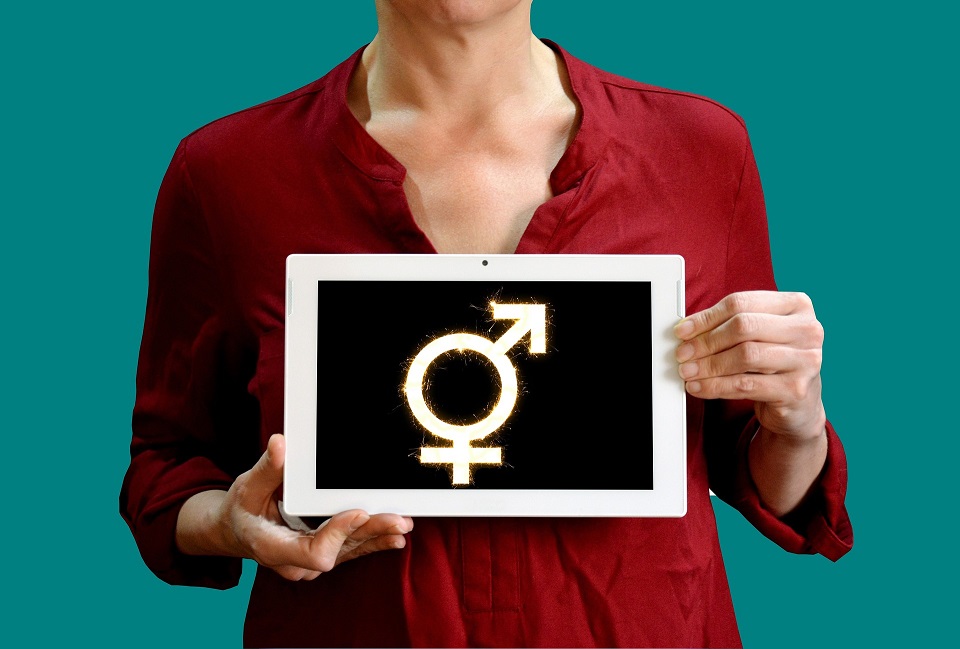 Noelia Ceballos Terrén
Noelia Ceballos Terrén
Nigel Desborough left his job as an economist to follow what he felt was his vocation: to be a pastor and dedicate himself to a more spiritual life.
However, he decided that his way of exercising his role as a spiritual leader must be outside of the Anglican Church which was too bound by its rules. Consequently, eleven years later, he continues to listen to his parishioners at Forest Hill Community Church. He criticises those Christians who promote a climate of hatred towards homosexuals, and in his parish he strives to offer a welcoming atmosphere to them as well.
In any case, he recognises that as a pastor he would not be able to distance himself so much from the Bible as to marry a same sex couple in his church.
Desborough is not partial to judging or condemning homosexuals for their sexual behaviours because, he recalls, “let he who is without sin cast the first stone”.
He admits that the Church needs to evolve to adapt itself to social changes, but he maintains that no progress alters the clear ban on homosexuality by the Bible. On this and other variations of the chilly topic he talked to The Prisma.
 Is it possible to be gay and Christian?
Is it possible to be gay and Christian?
I think it is, yes.
A conservative part of the Church condemns homosexuality. What do you think?
There’s a whole range of views and there is an extreme group who will be condemning homosexuality, and there are other parts where churches are extremely affirming. There’s a big spectrum in between. If people say in a church that they hate gay people, that’s a wrong attitude.
What does the Bible exactly say about homosexuality?
Nowhere in the Bible that I’ve read does it affirm homosexuality as a practice that is approved by God. Every reference affirms the marriage between a man and a woman and sexual practice that doesn’t fit with that is discouraged. So whether that’s adultery, divorce, sleeping with prostitutes, incest, the active practice of homosexuality or other sexual activities outside a male and female marriage, they are discouraged in the Bible.
What are the passages in which homosexuality is condemned?
There’s a reference to Sodom and Gomorrah in the Old Testament but there is also in the New Testament. That one is a mixed picture because there was this activity that looks like homosexual rape but there were many other evils. The story is that God judges them, but was it because they hated the poor or was it because they were violent? It doesn’t seem the homosexual rape was the same as a gay relationship today. So I wouldn’t use that passage. I think something like Romans Chapter I that talks about us being created as being the image of God and to obey God is the right way.
 And when people turn away from God, there’s a whole range of behaviours that can indulge in, and that mentions gay and lesbian sex as a behaviour that isn’t in line with what God wants.
And when people turn away from God, there’s a whole range of behaviours that can indulge in, and that mentions gay and lesbian sex as a behaviour that isn’t in line with what God wants.
Are gay relations a sin?
I think the Bible teaches that the active practice of sex outside male and female marriage is sinful.
Now it is possible for a same-sex couple to be married. Can they have sex?
That’s a new thing. Again, the Bible talks about marriage as one man and one woman. It doesn’t consider a marriage between two women or two men. It doesn’t say they can have same-sex marriage, because it discourages homosexual relationships. But there’s nowhere in the Bible where it says “same-sex marriage is wrong”. So you have to think: “Would it be consistent with what we read in the Bible?”
Would you marry or bless a gay couple in your church?
We have gay people in our church and we wouldn’t want to exclude them or attack them in any way. But if my authority comes from the Bible and from God, at the moment I don’t think I would perform a same-sex marriage.
The word homosexuality didn’t exist when the Bible was written.
That’s not true.
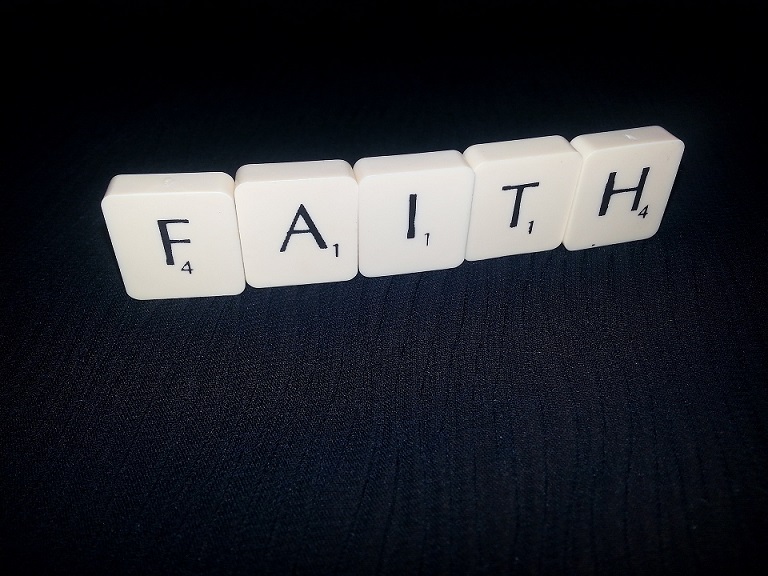 Does it appear in the Bible?
Does it appear in the Bible?
There’s probably more than one word. One of them is “arsenokoites” which literally means “man bed” or “man sleep”. There’s another word that is like the “soft partner” in a gay relationship, the one that will be the more feminine. So those type of people were known. Pederasty was known as well. And Romans talks about women exchanging natural sexual activity with another woman. It doesn’t use the word lesbian. As a kind of psychological word, homosexuality probably not, but that kind of practice didn’t start in the 19th century.
But don’t you make a distinction between these sexual activities and homosexual love?
Yes. The Bible is talking about sexual activity rather than feelings. So it discourages any sexual activity outside the marriage between a man and a woman. The Bible doesn’t specifically talk about the feelings.
So, are feelings of homosexual love sinful?
No, I think it’s the expression that’s condemned. In our world it’s not unreasonable to think that a minority of men and women would have feelings for their own sex. But the Bible message is to refrain from acting on them.
You condemn the sin but not the sinner.
I think Jesus came into the world not to condemn but to save the world. And I don’t think it’s my job to police people.
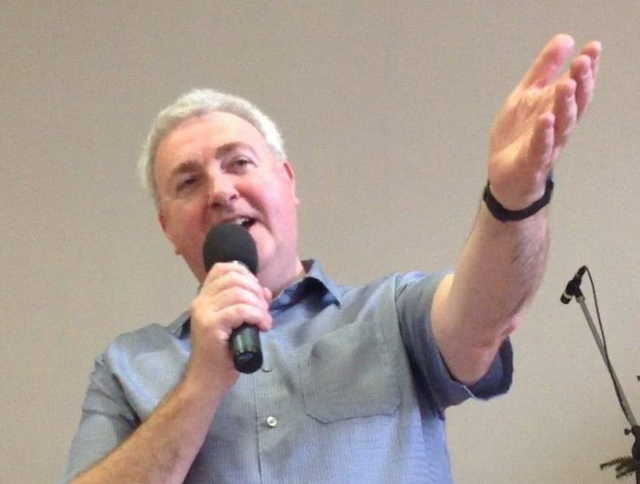
But do you think God will punish them?
I don’t think that way. That is the mentality of a Church where God is a big judge and he condemns sinners.
I think the irony for us is that he was moving around, he had more time for prostitutes, corrupt businessmen.
They realised they had wrong things in their lives. And then the religious people they were proud.
Jesus said “You are worse than they are”. So I don’t want, as a Church person, to be trapped into the thing of “Tell me what is a sin and then I’ll condemn the sinners”. I think Jesus wants people to change. I think God judges people differently from the way some religious people think he does.
Other churches have a more open understanding of the Bible. How can the same text lead to such different views?
The people who uphold the traditional view tend to say “This is the most obvious reading of this passage”. And the people who want to encourage same-sex relationships would say “What we know about God is not static. We know that God said things against homosexual practices in the past, but we know Jesus is very loving”. The question is: “Are they departing too far from the Bible?”.
Do you believe that the Church can progress?
You need to review what you believe about God with our society progressing and developing. On the one hand there’s internet and technology and other issues never mentioned in the Bible. And you have to think how the Bible can help to have a good perspective on these new things.
 But if my new perspective seems to be too far from what the Bible clearly says, then I can not go that far.
But if my new perspective seems to be too far from what the Bible clearly says, then I can not go that far.
LGBT people don’t want to deny who they are. Is it Christian to tell them that a part of them is sinful?
We all have desires and if everyone lets their desires flow, they would get into wrong behaviours. The vast majority of people naturally have sexual desires. And even for heterosexuals God says they should be restricted.
But there’s an inequality there, since heterosexuals don’t have to make the choice between religion and their sexuality.
Yes. There are lots of things against promiscuity against heterosexuals and homosexuals. But at the end of the day, the Bible says that heterosexuals can get married and it doesn’t say that homosexuals can. So, if equality is your number one thing, then there is an issue.
How do homosexuals in your church deal with that?
I haven’t been at the place where any of them asked me to marry them, and I would have to think very carefully if they did. But the ones who are currently in the church seem to find it a welcoming atmosphere. They don’t fear. Some of them had been in churches in the past and probably drifted away from church. But they usually come to us in a relationship.
 If one of the members of your church came to you to confess his or her homosexuality, what would you advise?
If one of the members of your church came to you to confess his or her homosexuality, what would you advise?
It depends on what they want. There’s a whole range of views out there.
There are some Christians that believe same-sex relationships are ok. There are Christians with same-sex attraction who don’t believe it’s ok and they want support not to participate in the gay lifestyle.
Prohibition of homosexual marriage amounts to considering that it’s a less true love than heterosexual love. But the Bible is about love, isn’t it?
It is about love, but not about free sex and romantic love so much as establishing loving relationships and remaining faithful. It’s not about hate. We often use the word ‘love’ to mean a nice feeling, and then you fall in love with someone else. That kind of modern cultural meaning of love is not really what the Bible’s talking about. The Bible talks about commitment.
Gay couples can be committed and have a settled life.
Yes. What I mean is the word ‘love’ means different things to different people. But I agree that there can be some relationships that are as loving and committed as heterosexual relationships.
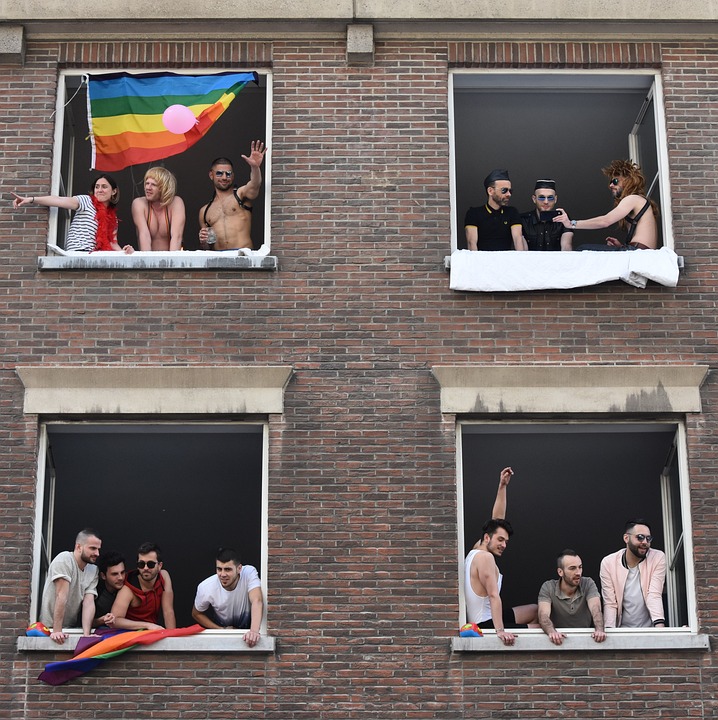 That’s why the prohibition to marry may be hard for some people to understand.
That’s why the prohibition to marry may be hard for some people to understand.
It is inconsistent in a modern world that makes equality the number 1 thing. I think looking historically you can understand, with levels of medical care and how society was, that there may have been good reasons to discourage homosexual behaviour.
But not now.
I think there are less reasons now in terms of the options in life.
Are gay people still being persecuted in the Church?
There has been historical persecution and bad treatment. There’s much less now. I think some members of Church disapprove of homosexual practice. I hope they would communicate that in a way that wasn’t hateful or condemning. But if a gay person wanted to be celebrated in their lifestyle and the person couldn’t celebrate that, the gay person may feel it’s hateful. One thing is how you feel when you feel something and another is when you’re receiving it. But I think there’s been a lot of change in recent years in terms of not being hateful. The Archbishop of Canterbury teaching against homophobic bullying is a sign there’s a degree of care.
Isn’t there a contradiction between condemning homophobia and, at the same time, preaching homosexuality is a sin?
It’s almost pushing someone into a corner that saying because you’re a Christian or a Muslim you’re not allowed to believe that your holy books don’t allow homosexuality.
 I think they should have a right to have that view and not be accused of being hateful and horrible.
I think they should have a right to have that view and not be accused of being hateful and horrible.
Do you agree with Christians who claim they are victims of legal persecution?
That’s a bit overblown at the moment. But I think it can be possible. I’ve personally heard of a case where a man was in a street quoting parts of the Holy Book. And in those parts it didn’t affirm homosexuality. Some gay people heard what he said, and went to the police. The man was arrested, thrown into jail for a night, and wasn’t well-treated by the police. The police have apologised. I think the cultural norm in the UK is that homosexuality is right, and you’re terrible if you don’t affirm it. But I don’t think too much of that is happening yet.
Is it alright for a pastor to forbid to one of his parishioners to participate in the life of the church for being gay?
I think that would definitely be a degree of hypocrisy. We all have done wrong things. If the spiritual leader said “because you’re homosexual you can’t participate but everyone else can” and then if he scratches below the surface of their lives, one is an adulterer, one doesn’t pay taxes, one doesn’t give any money to the Church.
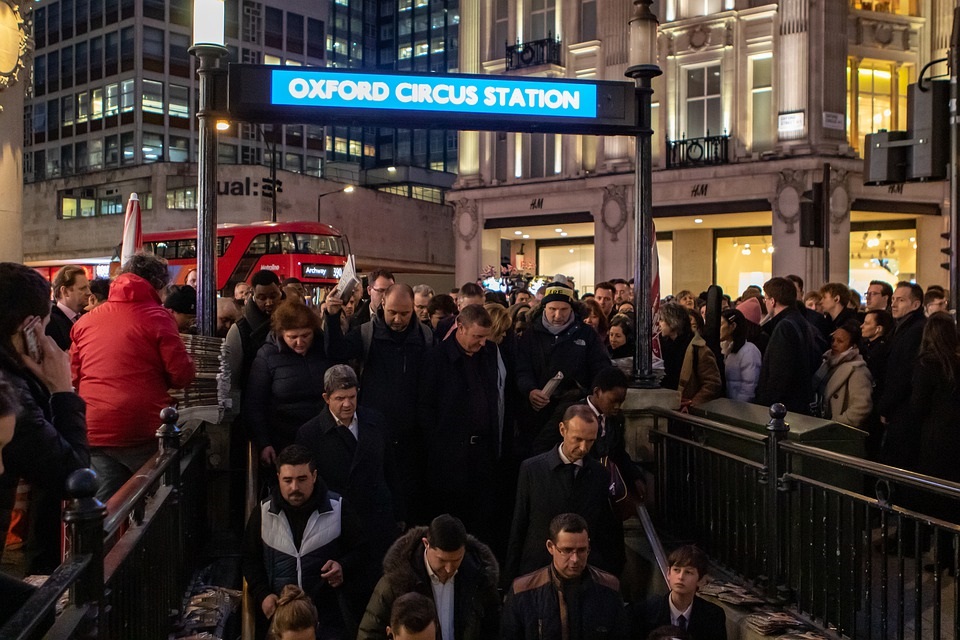 Psychologists agree that hiding your sexuality causes great emotional harm. How responsible is religion for the misery of LGBT Christians?
Psychologists agree that hiding your sexuality causes great emotional harm. How responsible is religion for the misery of LGBT Christians?
The language of hate and public condemnation has contributed to people feeling very bad about themselves. I would hope there’s more understanding and hate crimes are banned. That would make it easier for people struggling with their feelings. I’m glad the persecution is not now as it was a generation ago.
What would you tell families who cannot accept the homosexuality of one of their children?
I think they probably have a problem. And I don’t think it’s going to go away. A range of sexual feelings has been acknowledged, a lot of people express bisexuality as well. But I think if there’s a parent who just cannot accept their son or daughter’s homosexuality, he has a problem.
Is homophobia still encouraged by churches?
I wouldn’t say I’ve heard any encouragement.
There has been violence from Christian groups against homosexuals. To what extent is the position of the Church on homosexuality responsible for this?
 I think it’s just a bad action, isn’t it? That violence should be condemned. And it doesn’t seem to me very Christian.
I think it’s just a bad action, isn’t it? That violence should be condemned. And it doesn’t seem to me very Christian.
This is nothing I’ve heard the Church encouraged. But there are people who call themselves Christians and they don’t really know Jesus.
Can you understand the anger of LGBT community against religion?
I think I can because if your sexual orientation is such a crucial part of your identity and you want that affirmed, and there are groups who don’t affirm that sexual practice, I can understand why you are angry.
What’s your opinion about the use of ‘therapies’ against homosexuality?
I don’t think people’s sexuality is definitely fixed for everyone but I think it is very naive to think you can do inversion therapies. In the majority of cases people don’t stop being homosexual. But some people seem to change their own orientation, and I’ve met people that would say that they were homosexual, in a gay relationship, but now they’ve changed. And maybe they were suffering from homosexual neurosis and that has been cured through counselling, and they feel differently about their sexuality. So I don’t think it’s impossible. There are people who embrace their homosexuality, and other people who don’t want to be identified with the gay community and they say they have unwanted homosexual feelings.
 Do they feel that way because of that conservative morality of the Church?
Do they feel that way because of that conservative morality of the Church?
I haven’t spent much time with those people but I’ve read some of their books, and they say that they feel in their hearts that they don’t want to pursue that lifestyle, rather than trying desperately to conform to a conservative ideal.
You’ve employed the term ‘neurosis’, but psychologists condemn those ‘therapies’ because homosexuality is not a disease, nor a psychological problem.
I was just quoting someone who was in gay relationships, who is a trained clinical psychologist but he would say that he had homosexual neurosis. I wouldn’t say that.
Would you advise to one of the members of your church to go to therapy?
If they came to me and they said they’re really unhappy with their lives and they felt they had very much unwanted same-sex attractions, and if I knew of a group that I felt were trustworthy and professional, I would say that if you want to try this therapy it may not be a bad thing. But if they tried and it clearly wasn’t very healthy, then I wouldn’t push them in any way to continue. But I’ve met people who went through counselling and they’re much happier with their lives now. I wouldn’t want to be so dogmatic. Gay people can express their sexuality, we have same-sex marriage in the country and there’s been a huge drop in persecution and prejudice.
 Do you think a pastor can be gay? Is it a good example for his community?
Do you think a pastor can be gay? Is it a good example for his community?
I think there are a lot of pastors who are. I personally would have a problem with what the Bible says but I am aware that there are a lot of ministers that are behaving that way. But I am not sure the Bible affirms that.
(Introduction translated by Claire Donneky – Email: claire.donneky@ukgateway.net) – Photos: Pixabay












.jpg)












